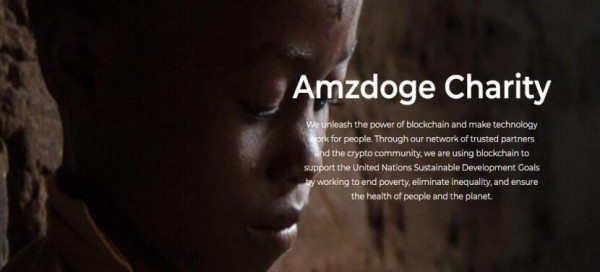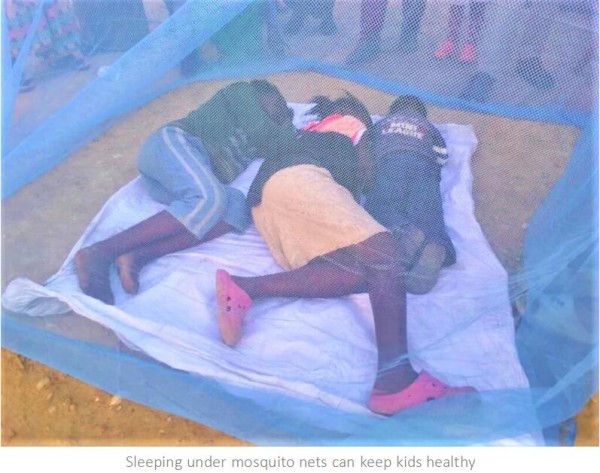The challenge
Malaria continues to be a problem globally, with an estimated 228 million cases and 405,000 deaths worldwide in 2018. Sub-Saharan Africa continues to bear a high proportion of the global malaria burden. In addition, children under the age of five are particularly vulnerable; in 2018, an estimated 272,000 children died from malaria, most of them in Africa. This means that we have a child dying from malaria every two minutes.
In Zambia, malaria transmission is high in all parts of the country due to high co-infection rates of HIV and malaria, water logging and poor sanitation. One third of households do not have even one mosquito net, while the rest may need more than one per household. In addition, less than 50% of children under the age of five sleep under a mosquito net, even though malaria can be fatal for them.

The solution
Effectiveness of the nets provided: a follow-up study of net beneficiaries showed that
over 90% of recipients knew how to hang and use the nets correctly.
Only 2% of households had torn or damaged nets.
after several months of use, none of the households had contracted malaria.
98% of the sampled households had increased knowledge about malaria and retreatment of nets, and an average of three children slept under the nets.
According to the World Health Organisation, sleeping under a mosquito net is the most cost-effective way to prevent malaria. Our plan is to reduce the incidence of malaria by providing 30,000 long-lasting insecticide-treated nets, which will benefit 30,000 adults and 60,000 children. The nets will be provided to the most vulnerable groups: HIV-positive children and adults, pregnant women, the elderly and people living with tuberculosis.
A net costing less than US$5 will keep three malaria-free children healthy and in school. As the nets can be used for up to two years, it costs just a few cents to keep children free of malaria and in school.
Long-term impact
The provision of mosquito nets and education has made a significant difference in reducing the incidence of malaria. More specifically, the quality of life of beneficiaries has improved as a result of better understanding of the correct use, storage and re-treatment of mosquito nets.
fewer infections and deaths due to malaria.
fewer visits to hospitals/clinics being required due to better health.
Better health leads to better school attendance and fewer days of absenteeism.

AMZDOGE Charitable Foundation: Project activities in Zambia 2023
Beneficiary communities: AMZDOGE has selected several urban and rural communities based on need and malaria transmission rates. The urban communities are Matero, Garden, Lusaka West and Mother of Mercy Hospice in Lusaka. the rural communities are Kafue (30 miles south of Lusaka) and Lwashimba (125 miles north of Lusaka). Many areas of these communities are breeding grounds for mosquitoes due to the high incidence of malaria caused by water logging and poor sanitation. Secondly, the incidence of malaria in these communities is high because of the high co-infection rate of HIV, malaria and tuberculosis. Most residents cannot afford mosquito nets because they live on less than $2 a day, which the UN defines as extreme poverty.
A world without malaria: we believe that we can work together to end malaria in the coming years. A world without malaria will lead to healthier, more economically stable families and more sustainable communities.
Media Contact
Company Name: AmzDoge Financial
Contact Person: Corleone
Email: Send Email
Country: United States
Website: web.gendoge.com
